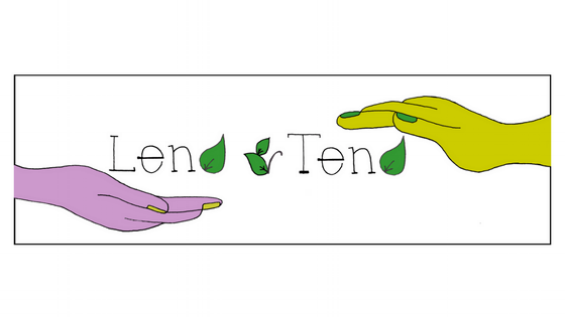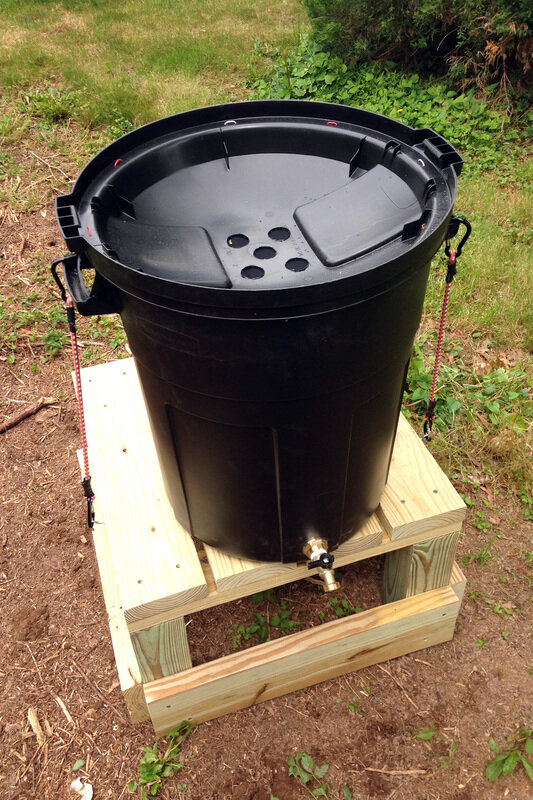Thriving Drives and sharing-front gardens
Put your best front forward! Let’s get those front yards and driveways thriving.
Most of Britain’s gardens are usually concealed from passers-by, be it a garden belonging to a terraced home or maisonette; the front yard (a place to put the bins) merely a second thought, when it’s the thing that people see first.
For houses that don’t have a side access to the garden, it means that garden-Tenders have to go through the house to garden-share.
Many of the wonderful people who have signed up to Lend their gardens and garden-share are ok with this, so long as Ground Rules are adhered to with regards to visiting times, and making sure muddy footprints are never a problem.
However, due to the uncertain risks relating to the COVID situation and many people still shielding, going through a garden-Lender’s home to access the garden is currently not possible for a lot of garden Lenders.
Why should back gardens get all the attention?
With the suggestion of taking 1 hour of daily exercise during lockdown, we’ve gotten to know our neighbourhoods a whole lot more. On my own walks, I’ve noticed an enormous upsurge of gardening this summer in Lockdown. A covetable distraction for those who have been cooped up with no-garden to escape to, but what about front gardens? These are spaces that can be shared and gardened too!
Front gardens offer as much potential in helping to manage mindfulness and boost well-being, even if it is just literally pottering in pots.
If you’re interested in sharing a front garden, there are also lots of varieties of plants you can grow in small spaces. Look for edibles that have high-yields and a small footprint and it’s certainly a smart time to start planting Winter veg as well as Spring bulbs for dependable delight and joy next year.
Take this space in South London, for example. The very generous person who owns this garden has signed up to share their front AND back garden, but due to shielding, they are continuing to garden-share, but only the front garden for now.
There’s still so much potential for someone to make some upcycled raised beds and start growing in front garden like this.
The front yard, doesn’t need to be left lacking of life.
Over the past couple of months, the front garden has gained a powerful new significance. For many it has become the point of contact – a socially distanced greeting over the garden gate, a conversation with friends or family delivering supplies, or catching up with a neighbour you’d hardly spoken to before. It has become a safe place where you could still engage with the outside world or join in community events, such as clapping for carers.
-Clare Coulson, Doorstep delights: why front gardens matter
On paying attention to the front garden, Charlotte Harris’ of HarrisBug, award winning landscape architectural firm also contributed
It’s the ultimate in gardening altruism, because your back garden is for you to enjoy, but your front garden is about improving everyone’s experience.
Whether a front garden is neglected due to inertia or bewilderment or a bit of both, the decision to pave over a garden to reduce labour often causes more work later down the line. Badly concreted ground can cause flooding and damage to an adjacent property, this all said: The main villain to gardens; as Jenny Uglow put it (sixteen sweet years ago), is the car.
In her pithy article Concreting over front gardens boosts crime, fills up A&E and adds to global warming but apart from wonkily installed paving tripping up your pizza delivery person and landing yourself in a litigious ordeal because of it, there is also scientific evidence that these neglected greyed, once garden spaces; can attract fly-tipping and crime.
Psychologist and behavioural medicine researchers at the University of California, with a greening up project and the Pennsylvania Horticultural Society proved that by clearing rubbish, planting new grass and trees, it discouraged further dereliction of unkempt areas when there were visible efforts that the space was being taken care of.
The positive effects of the project were seen to be even more beneficial in neighbourhoods below the poverty line. There, landscaping vacant lots reduced overall crime by more than 13% and dropped gun violence by nearly 30%. Burglary and nuisance reports also plummeted in these neighbourhoods by nearly 30%, once the front yards had been improved with gardening.
Neighbours reported feeling feeling safer. Residents living in the ‘greened’ environments reported feeling 58% less fearful of going outside than people living near unimproved spaces.
Researchers suggest that these movements themselves may reduce crime; seeing and interacting with people in your neighbourhood on a recurring basis is “a powerful force” in helping people feel safe in their communities, and feel part of the community perhaps.
-Roni Dengler, This city fights crime with gardening
Pre-lockdown, when we’d slam our doors and run for the bus or jump in the car without truly paying mind to our garden, let alone our neighbours and for most of the year return home in the dark; whilst most of us work tirelessly throughout the day in front of blue light, we forget that our driveways get to bask in sun light all day.
The Small Gardener, Rajul Shah whom I recently interviewed in lockdown, suggests:
The space you want to put your car on doesn't have to be completely solid… in the middle, leave it open, stick some shingle over it and plant it because if you commute in; your driveway is going to be empty for a huge amount of the day. Fill it with low growing plants, you know things that are going to creep and crawl all over the place that are great for attracting insects and butterflies and bees. And don't waste that space and even the little edges and crevices between your fence in your driveway, don't forget that little space, there's there's lots of things that you can plant that can be beneficial.
If you are on a road that isn't very busy or doesn't have a lot of pollution and if your front garden is the sunny part of your garden, maybe put a bench out and grow some fruits and veggies. The lovely thing about being in a front garden is, you get to know your neighbourhood.
If you're out there, doing a bit of pottering; people stop and chat to you and you get to know your neighbours and you see people regularly and that's really lovely.
Photo credit, Rajul Shah
Ok, you might not have a front garden big enough for a mini allotment, but there are brilliant varieties of tomatoes that grow in hanging baskets, and as Jessi Wong from NotaHorticulturist.com has done, you could try purple tree collard, vining plants like climbing squashes; shade loving spinaches, there are so many different things you could try.
A big butt is...? Well, what do you do if you don’t have a water supply at the front of your house, but you’d like to share your front garden?
Part of your garden-sharing project could be upcycling a plastic bin and using it to collect rainwater.
Or you’ve only got to look online to find a shop bought one for around £30-£50.
There are also other solutions, if you live within a short walking distance there are also a plethora of collapsable watering cans and containers available.
One garden Lender has suggested that because they’re shielding and aren’t able to have visitors they’d be happy to fill a can up with a hose and leave it on the porch for when the garden Tender arrives. Of course, you’d have to work out these details between yourselves, Lender and Tender to make sure what you plan to do is safe and practical. So long as we stay safe, keep our distances, keep hands clean, wear face masks and avoid sharing tools, we can continue to garden-share and caring for others and our environment.
Maintain the momentum: find new front door friendships
For their 1st Birthday 🎉 The National Park City movement celebrated with an online assembly of 100 Voices.
Lend and Tend featured alongside a host of other brilliant people who proudly call London their home, sharing their stories how they’re making the city better for everyone during the 3 night festival online.
We’re teaming up with The National Park City movement to get people sharing front gardens and greening grey areas, like paved over front gardens. More details will be released soon, but in the meantime, check out the RHS Greening Great Britain page to find out what plants might suit your front garden space and what you can plant to attract pollinators.
So, why not try garden-sharing front as well as back gardens, get growing and get more aquatinted with people in your neighbourhood who you may never otherwise meet.






